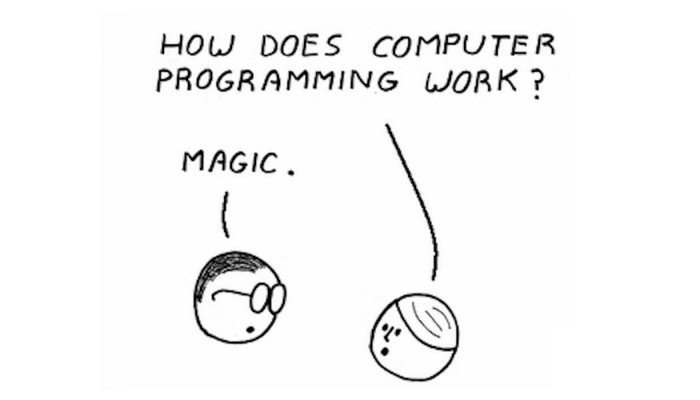Whether you’re a freshman in college or someone who’s considering a 180 degrees career change, you’ve probably sat awake late at night, typing the same question into Google:
Which programming language should I learn first?
And you probably saw Java pop up quite a few times.
Although few programmers would say that one language is objectively better than others, and to have a lucrative career as a developer yourself you’ll need to learn more than one language, Java actually happens to be a good starting point.
It all comes down to four major factors: 1) The Java job market is experiencing an upward curve, 2) Java developers have many job prospects, 3) Java is easy to learn, and 4) newcomers can gain experience in many ways.
Let’s have a closer look at the strengths of this programming language and why you should start with it, out of all things.
The current state of the Java job market
This applies to all careers, not just that of a developer. Before you learn a new skill, you should make sure that skill is in high demand and that the industry where you plan to work in, will still be relevant in a few years. With Java, it will be.
Although it’s an old programming language, Java is as relevant and influential today as it was in the 90s, and most of its popularity is due to the fact that it’s platform-independent. This means that no matter where you write, the Java program will execute on any other OS (Operating System). It also has extensive applications, so you can use it to develop anything from mobile apps and desktop GUI applications to embedded systems and web servers.
Data from Indeed.com shows that Java is the top skill required for a software engineer job (53%), followed by C++ (41%), and Python (31%). Additionally, 51% of full stack developer ads require candidates to know Java.
What career prospects do you have as a Java developer?
According to the U.S. Bureau of Labor Statistics, Java is on track to grow by 19% in the following five years, so if you choose to learn this programming language, you’ll have many options in your career.
Whether you want to start your career in a small start-up or a multinational, companies are hiring Java developers, so there will be no shortage of job openings.
Newcomers typically stay in a junior developer position for at least one year, during which time you will be coding, debugging, and having your code reviewed for errors. Depending on how fast you progress, you will be promoted to senior programmer, which means that you’ll have more responsibilities, take on more complex projects and supervise them from conception to finished product.
According to PayScale, the average salary for a Java developer is $74,117, but the highest reported annual salaries are reported in San Francisco and Arlington, where the median salary can reach $97,000. As you climb the career ladder and become a senior Java developer, the average salary grows to $95,787. In tech hubs such as San Francisco and Washington, a senior Java developer can earn as much as $124,000/year.
That being said, the Java job market is also highly competitive, and you’ll need to stand out from other aspiring candidates. Employers typically require a degree in computer science, but it’s not always compulsory. For example, entry-level jobs have more permissive requirements, and you might get accepted if you can prove that you took at least a Java course. However, at the end of the day, employers will prioritize experience and hire the candidates that show the most promise.
How fast can you learn Java?
If you have no experience with programming at all, learning any computer language will be tricky because it takes a way of thinking that doesn’t come naturally. However, if you have some sort of background in computer science, learning Java isn’t particularly challenging compared to other languages. In fact, it’s easier than C++, which doesn’t have such a straightforward syntax.
The good news is that with dedication and the right help, you can learn to code in Java without studying it in college. There are many online Java courses to choose from, and even if you have another job, you can find time to practice for a few hours a day. Still, you should have realistic expectations because, just like in the case of a foreign language, you can’t master a programming language overnight. It takes about six months of daily practice to make a habit out of coding and familiarizing yourself with it.
Where can you get experience?
Fortunately for newcomers, there has never been a better time to become a programmer. Unlike a few decades ago, when you had to study computer science in school to land a job, now the context favors self-taught developers.
After you’ve decided why you need Java and laid out a personal education plan, the best way to learn is to join a Java online course, which will explain things from scratch. Although there will be some research and programming theory involved, most courses focus on practice and actual coding. That’s the best way to gain experience.
One of the most important things to remember when learning Java is that you should never get stuck on something you don’t understand. Fortunately for you, the online programming community is vast, and whenever you have a question, there’s always a place to look for answers. Apart from enrolling in a course, join as many forums and coding communities as possible (Stack Overflow, Reddit, etc.). If you feel stuck and you can’t wrap your head around a topic, someone will help you out. The same applies if you want someone to review your code and suggest improvements.
Most importantly, you shouldn’t wait to get a job to gain experience. Try to create something from scratch and build a small portfolio. Even if it’s not that impressive, you’ll learn a lot and familiarize yourself with the tasks that a Java developer has to solve. When you feel confident enough, share your projects in discussion boards, and more experienced programmers can review your code and suggest improvements.


